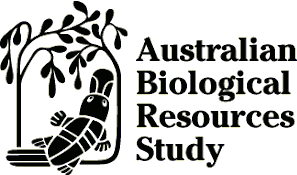Australian Tropical Rainforest Plants - Online edition
Eclipta prostrata (L.) L.
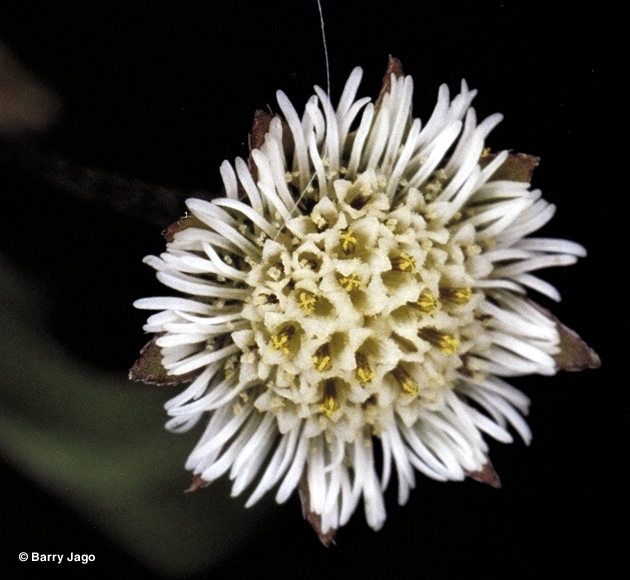
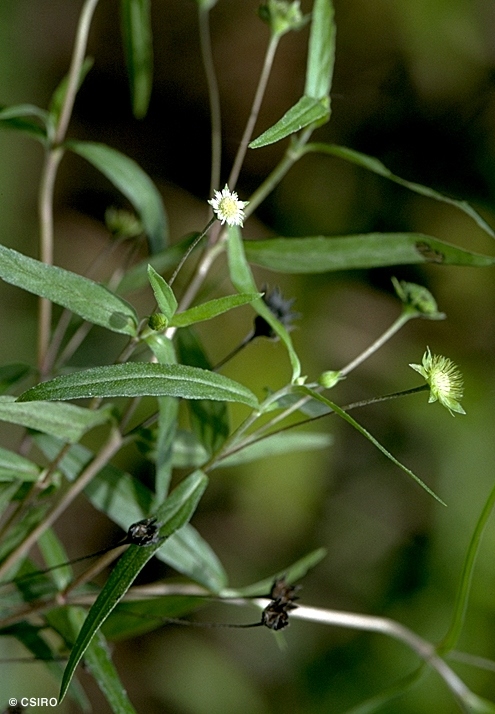

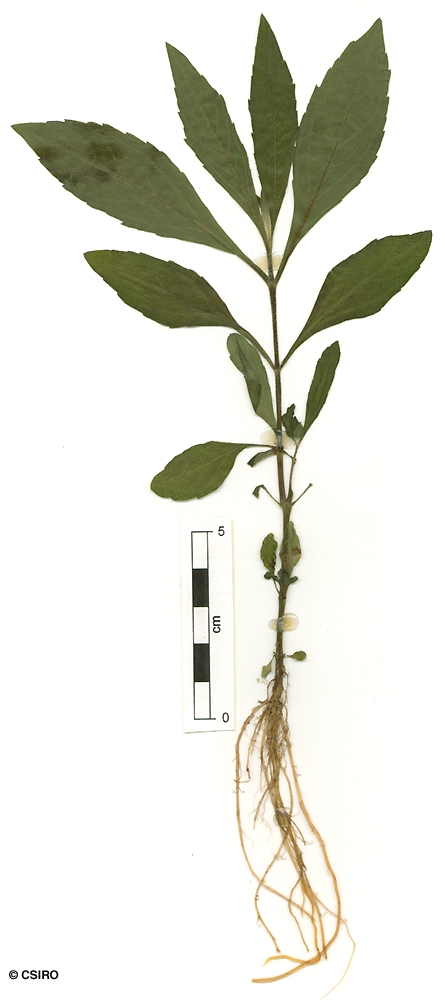
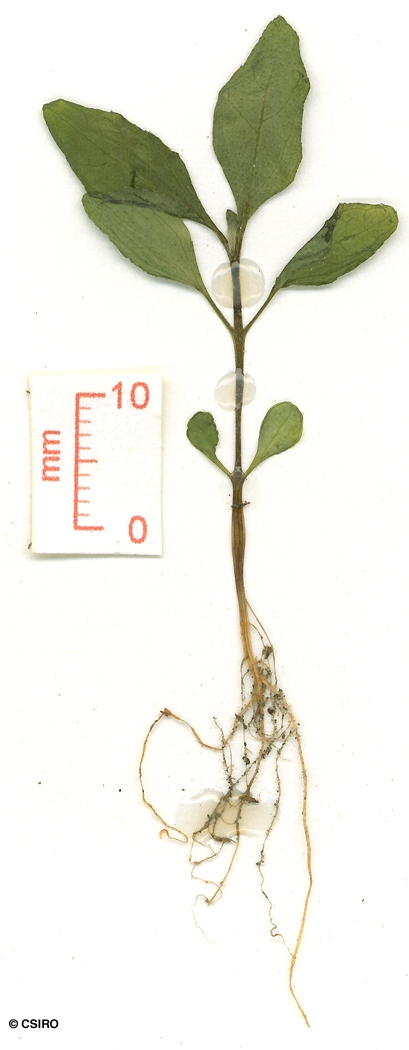
Linnaeus, C. von (1771) Mantissa Plantarum Altera : 286.
Daisy, False; False Daisy; White Twin-heads
Usually a herb but sometimes flowers and fruits as a shrub about 1 m tall.
Fruits borne in heads. Individual fruits about 3 mm long, surface strongly tuberculate, pappus absent. Testa brown to black, marked by a transverse pattern of lines.
Cotyledons about 3-6 x 2-4 mm, petiole about 1 mm long. First pair of leaves opposite, margins with 1 or 2 teeth on each side close to the apex. At the tenth leaf stage: leaf blade about 8-12.5 x 2.5 cm, bases very attenuate. All parts of the seedling clothed in white, prostrate, stiff hairs. Lateral veins about 7 or 8 pairs forming loops close to the leaf blade margin. Seed germination time 20 to 86 days.
A species with a pantropic distribution. Occurs in WA, NT, CYP, NEQ, CEQ and southwards to south-eastern Queensland and north-eastern New South Wales. Altitudinal range in northern Queensland from near sea level to 550 m. Usually grows as a weed of agricultural land and waste places but occasionally found in disturbed areas in rain forest.
This species has some minor medicinal uses for the treatment of people. In India it has been used to treat wounds in cattle.
In India and South-East Asia, the leaves, either boiled or pounded, have been mixed with coconut oil to promote luxuriant growth of hair, as well as to dye grey hair black.
The plant contains a small amount of nicotine which possibly has a slight narcotic effect. Cribb (1981).




